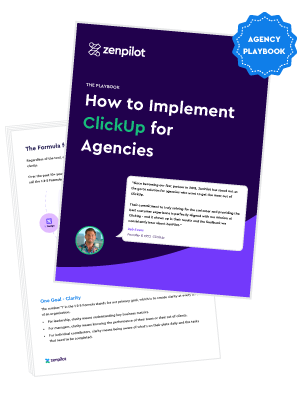Avoiding Legal Pitfalls for your Agency with Sharon Toerek
To chat with Gray and have ZenPilot lead your team through the last project management implementation you'll ever need, schedule a quick call here.
Sharon Toerek joins us on this week’s episode of Agency Journey to discuss common legal pitfalls for digital agencies, revenue-sharing relationships, and much more.
Sharon operates Toerek Law, based out of Cleveland, Ohio, and specializes in intellectual property and marketing law for agencies.
A few of the most common legal areas that cause headaches to digital agencies include:
- Ownership rights to client work
- Liability and indemnification issues
- Portfolio display rights
- Independent contractor agreements
Ownership Rights to Client Work
While it’s standard practice that clients will ultimately own the work produced by an agency, negotiating the timing of the transfer of ownership is crucial.
Sharon points out that you need your agreements to tie the transfer of ownership to payment requirements. This requires clients to complete payments in order to secure ownership to the work you’ve done on their behalf.
Liability & Indemnification
Agencies should be responsible for the quality of their work.
That said, you don’t want to put your firm in a position where you are legally liable for variables that you cannot control.
You may build a fully functional site today that breaks when the client adds in new plugins next month. Hopefully that’s not the case, but you need to protect your downside against unforeseen circumstances.
Portolio Display Rights
Sharon’s advice is to have the correct terms written into your standard agreement to allow you to demonstrate your past work without needing client approval every time you’d like to cite your success.
The extent to which agencies publicize client work varies broadly across service types, but you never have more leverage than at the beginning of a relationship, so negotiate for the best terms upfront.
Independent Contractor Agreements
Most agencies work with independent contractors or 3rd-party vendors in some capacity.
If you don’t have a strong agreement in place to govern that relationship and accompanying rights, you run a number of legal risks.
Prioritize building proper agreements with any contractors, suppliers, or vendors to make sure you don’t wind up in a compromised position.
To connect with Sharon or learn more, you can check out her site, Legal + Creative, and her podcast, The Innovative Agency.




